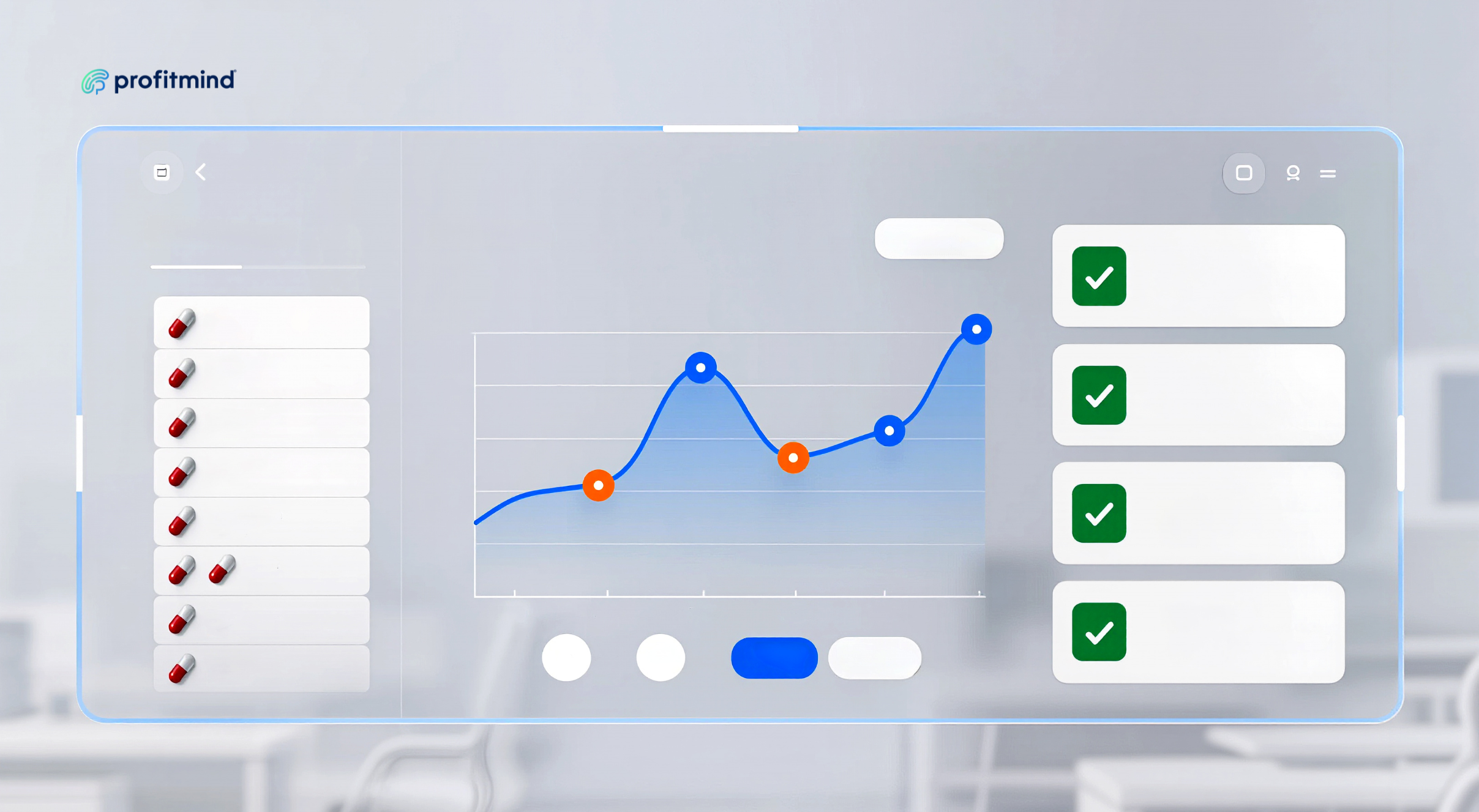AI Applications in Retail: Boost Profitability

This week we continue our roundup of interesting and value creating applications of AI in the retail industry. There are compelling stories about how AI is being applied to reduce waste by improving the ability to restock returned items, and how AI is being used by designers to make the creative process more efficient; plus more. Overall, this week we have identified 13 ways that retailers are using AI and technology to boost profitability or cut costs. We hope this is interesting to read, but also sparks some ideas that you can bring back to your business. As always, feel free to share your opinions and ask questions - we are all still learning about this exciting new technology together.
AI Streamlines Returns and Enhances Sustainability
Retailers are turning to AI solutions to address the challenges of product returns and environmental sustainability. According to Retail Dive, around a quarter to nearly half of all clothing items returned to retailers end up discarded instead of being resold, exacting a heavy environmental toll. To combat this issue, AI-powered image recognition tools can generate accurate descriptions for product images, enabling better resale opportunities and reducing waste. Additionally, a study by Narvar revealed that most consumers prefer exchanges or store credit over refunds, provided the returns process is simple. AI-powered chatbots and virtual assistants can streamline the returns process, making it easier for customers to exchange or receive store credit, potentially reducing costs associated with processing refunds.
Addressing the product returns conundrum is crucial for retailers, as it not only impacts profitability but also aligns with growing consumer demand for sustainable practices. By leveraging AI to facilitate seamless exchanges, resale opportunities, and environmentally conscious solutions, retailers can enhance customer satisfaction while reducing operational costs and minimizing their environmental footprint.
Profitmind thinks: Implementing AI-powered chatbots and virtual assistants to handle product returns could potentially reduce return-related expenses by 15-20% for retailers. Additionally, leveraging AI image recognition to accurately describe and resell returned items could boost profitability by 5-10% through reduced waste and increased revenue from resale channels. These estimates are based on industry data and case studies shared by AI solution providers like Narvar and Retail Dive.
Sources:
https://www.retaildive.com/news/44-of-returned-items-never-resold/
https://www.retaildive.com/news/online-shopper-returns-behavior/725206/
Retailers Embrace AI to Boost Online Sales
Major retailers like Walmart are integrating AI capabilities into their e-commerce platforms to drive higher online sales. BigCommerce is rolling out AI tools designed to optimize product discovery, personalization, and marketing campaigns. According to Modern Retail, these AI-powered enhancements could potentially increase sales by enhancing the online shopping experience, leading to higher conversion rates and customer lifetime value. Along similar lines, Walmart also unveiled new AI-driven tools at its annual seller summit to improve analytics, advertising, and fulfillment for third-party sellers on its marketplace. By enabling merchants to leverage AI insights and capabilities, Walmart aims to attract more sellers, expand its product assortment, and boost overall e-commerce revenue.
The integration of AI into e-commerce platforms represents a significant opportunity for retailers to gain a competitive edge. By leveraging AI to surface the most relevant products, personalized offers, and streamlined fulfillment, retailers can create a seamless and engaging online shopping journey, ultimately driving increased sales and profitability.
Profitmind thinks: Implementing AI-powered product recommendations and personalization could potentially boost online conversion rates by 10-15% for retailers. Additionally, AI-driven marketing optimizations could yield a 5-10% increase in customer lifetime value by delivering more relevant promotions and offers. These estimates are based on industry benchmarks and case studies shared by AI solution providers like BigCommerce and Adobe.
Sources:
AI Enhances Design and Creativity in Retail
AI language models like ChatGPT are being customized to assist with design tasks such as content generation, logo creation, website building, image enhancement, and user experience optimization. According to Practical Ecommerce, these "custom GPTs" offer retailers new possibilities to streamline design processes, reduce costs, and enhance customer experiences. By leveraging AI's capabilities, businesses can potentially gain a competitive edge through more efficient and effective design solutions that could improve sales and profitability.
In the realm of fashion and apparel, AI is also playing a pivotal role in fostering creativity and innovation. SUPIMA , an organization promoting American-grown Pima cotton, hosts an annual design competition for emerging talent, with the winner receiving a $10,000 prize and valuable exposure during New York Fashion Week. Such initiatives allow up-and-coming designers to showcase their skills and gain recognition within the industry, potentially leading to new product lines and increased sales for retailers.
Profitmind thinks: Implementing AI-powered design tools could potentially reduce design and creative costs by 20-30% for retailers, while also accelerating time-to-market for new products and campaigns. Additionally, identifying and supporting fresh design talent through AI-assisted competitions could lead to the development of unique and appealing product lines, potentially boosting sales by 5-10% for retailers carrying these exclusive offerings. These estimates are based on industry benchmarks and case studies shared by AI solution providers and design organizations like Practical Ecommerce and Supima.
Sources:
https://www.practicalecommerce.com/custom-gpts-for-design
AI Optimizes Retail Supply Chains and Sourcing
Leading brands like PUMA are leveraging AI to optimize their supply chains and sourcing operations. PUMA Group appointed Indrajeet Sen as the new Senior Vice President of Group Sourcing, overseeing global sourcing, product development, operations, and sustainability efforts. According to Businesswire, this strategic move could help PUMA streamline its sourcing processes, potentially reducing costs and improving efficiency. By optimizing its supply chain, PUMA may enhance profitability and strengthen its competitive position in the retail market.
Similarly, Alleguard , a Wynnchurch Capital, L.P. portfolio company, acquired Harbor Foam , a Michigan-based manufacturer of expanded polystyrene foam products. This acquisition broadens Alleguard's product line and customer base in the foam manufacturing industry. For retailers, this consolidation could yield cost savings and expanded availability of foam products through a larger, diversified supplier.
Profitmind thinks: Implementing AI-driven supply chain optimization and sourcing strategies could potentially reduce operational costs by 10-15% for retailers. Additionally, strategic acquisitions and consolidation within the supplier ecosystem could generate cost savings of 5-10% through economies of scale and operational synergies. These estimates are based on industry benchmarks and case studies shared by companies like PUMA and Alleguard, as well as supply chain management experts.
Sources:
http://www.businesswire.com/news/home/20240828711545/en/Alleguard-Invests-in-Harbor-Foam/
AI Powers Seamless Checkouts and Secure Transactions
As online shopping continues to grow, retailers are leveraging AI to enhance the checkout experience and ensure secure transactions. Bitwarden , a password manager, unveiled an update enabling seamless autofill for credit cards and personal data on web forms. According to BusinessWire , this new capability aims to streamline online payments, contacts, addresses, and registrations, potentially reducing cart abandonment and boosting conversion rates. By simplifying form-filling while prioritizing security, this update may increase sales by eliminating friction during the purchase journey.
Additionally, retailers like SEPHORA are introducing faster online checkout processes for loyalty program members. As reported by Chain Store Age , the beauty retailer now automatically recognizes and pre-populates payment and shipping information for these customers during checkout. By reducing friction in the purchase journey for loyal shoppers, Sephora could drive higher average order values and repeat purchases.
Profitmind thinks: Implementing AI-powered autofill and streamlined checkout processes could potentially increase online conversion rates by 8-12% for retailers. Additionally, enhancing the checkout experience for loyalty program members could boost repeat purchase rates by 5-10%, leading to increased customer lifetime value. These estimates are based on industry benchmarks and case studies shared by companies like Bitwarden and Sephora, as well as e-commerce optimization experts.
Sources:
https://chainstoreage.com/sephora-offers-loyalty-members-new-digital-payment-option
AI Drives Personalization and Customer Engagement
Retailers are increasingly turning to AI to deliver personalized experiences and foster customer engagement. According to Retail Dive , generative AI chatbots can leverage customer data and company knowledge to provide tailored assistance and recommendations. This capability could enhance customer satisfaction and potentially boost sales by offering contextualized self-service, reducing support costs while driving loyalty and repeat purchases.
In the realm of marketing, AI is also playing a pivotal role. Modern Retail reports that as direct-to-consumer brands like OLIPOP PBC, BÉIS, and Kopari Beauty surpass $50 million in sales, they are prioritizing investments to professionalize their marketing operations. By onboarding experienced marketing leaders and building new AI-driven capabilities, these brands aim to implement more sophisticated, data-driven marketing strategies across channels, fueling accelerated sales growth and acquiring new customers more efficiently.
Profitmind thinks: Implementing AI-powered chatbots and virtual assistants for personalized customer service could potentially reduce support costs by 15-20% while increasing customer satisfaction and repeat purchase rates by 5-10%. Additionally, leveraging AI for data-driven marketing campaigns and personalization could yield a 10-15% increase in customer acquisition rates and a 5-8% boost in customer lifetime value. These estimates are based on industry benchmarks and case studies shared by companies like Retail Dive and Modern Retail, as well as AI solution providers.
Sources:
Summary
As retailers navigate the challenges of an increasingly competitive market, embracing AI technologies has become a strategic imperative. The potential benefits are substantial. This week we identified:
- 6 Incremental Sales Ideas Each Worth 5%-15% of Annual Sales
- 4 Cost Reduction Ideas Each Worth 10%-25% of Total Costs
- 3 Customer Life-Time Value Ideas Each Worth 5%-30% of Total Sales
Leveraging AI across various aspects of their operations, from e-commerce and supply chains to marketing and customer service, retailers can unlock significant revenue growth opportunities and drive profitability. By staying ahead of the curve and adopting innovative AI solutions, retailers can gain a competitive edge and thrive in the rapidly evolving retail landscape.
Subscribe to this newsletter and stay updated on the latest AI trends and strategies for boosting retail profitability. Schedule a demo at https://www.profitmind.com/#Demo_Schedule to explore how Profitmind's AI-powered solutions can revolutionize your business and maximize profits.
See why Profitmind's retail AI technology pays for itself in the first month
Discover More

AI Predictive Analytics for Retail Pricing Decisions That Need to Move Faster
Discover how AI predictive analytics helps retail pricing teams anticipate demand shifts, spot competitive signals early, reduce margin risk, and make pricing decisions with forward-looking insight.

Implementing An AI Pricing Optimization Solution With Your Existing Stack
Learn how AI pricing optimization integrates with your CRM, ERP, and pricing tools to reduce variance, prevent margin leakage, and deliver real time guidance where pricing decisions happen.

Profitmind + Accenture: Turning Retail Insights Into Action With Agentic AI
Accenture Ventures invested in Profitmind and formed a strategic partnership to help retailers automate pricing, inventory, and planning with agentic AI.


